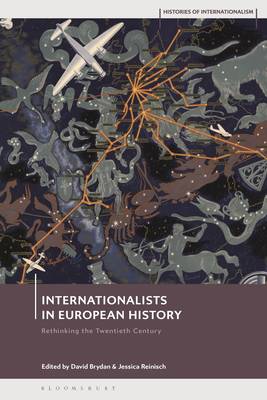
- Afhalen na 1 uur in een winkel met voorraad
- Gratis thuislevering in België vanaf € 30
- Ruim aanbod met 7 miljoen producten
- Afhalen na 1 uur in een winkel met voorraad
- Gratis thuislevering in België vanaf € 30
- Ruim aanbod met 7 miljoen producten
Zoeken
Internationalists in European History
Rethinking the Twentieth Century
€ 72,95
+ 145 punten
Omschrijving
Representing a crucial intervention in the history of internationalism, transnationalism and global history, this edited collection examines a variety of international movements, organisations and projects developed in Europe or by Europeans over the course of the 20th century. Reacting against the old Eurocentricism, much of the scholarship in the field has refocussed attention on other parts of the globe. This volume attempts to rethink the role played by ideas, people and organisations originating or located in Europe, including some of their consequential global impact.
The chapters cover aspects of internationalism such as the importance of language, communication and infrastructures of internationalism; ways of grappling with the history of internationalism as a lived experience; and the roles of European actors in the formulation of different and often competing models of internationalism. It demonstrates that the success and failure of international programmes were dependent on participants' ability to communicate across linguistic but also political, cultural and economic borders. By bringing together commonly disconnected strands of European history and 'history from below', this volume rebalances and significantly advances the field, and promotes a deeper understanding of internationalism in its many historical guises. The volume is conceived as a way of thinking about internationalism that is relevant not just to scholars of Europe, but to international and global history more generally.Specificaties
Betrokkenen
- Uitgeverij:
Inhoud
- Aantal bladzijden:
- 304
- Taal:
- Engels
- Reeks:
Eigenschappen
- Productcode (EAN):
- 9781472986986
- Verschijningsdatum:
- 25/08/2022
- Uitvoering:
- Paperback
- Formaat:
- Trade paperback (VS)
- Afmetingen:
- 156 mm x 234 mm
- Gewicht:
- 426 g

Alleen bij Standaard Boekhandel
+ 145 punten op je klantenkaart van Standaard Boekhandel
Beoordelingen
We publiceren alleen reviews die voldoen aan de voorwaarden voor reviews. Bekijk onze voorwaarden voor reviews.






